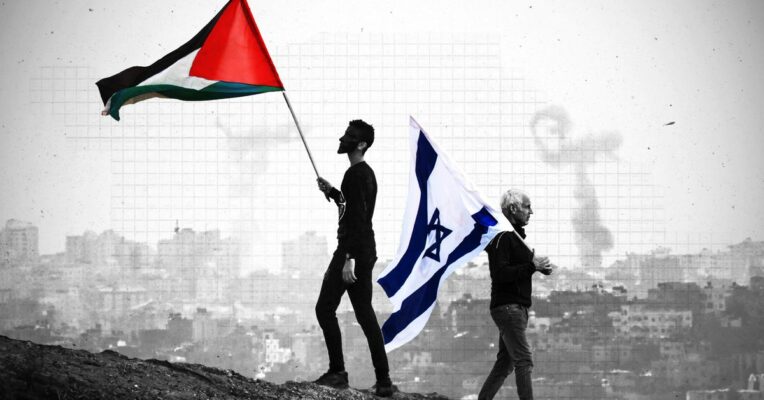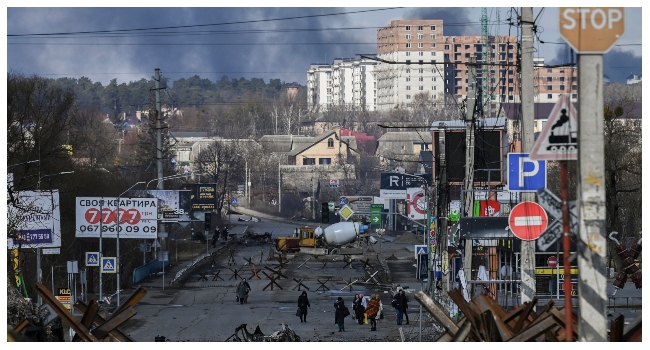
Hamas said Monday it accepts a proposal for a truce in the seven-month-old war in Gaza, as Israel renewed an order for Palestinians in Rafah to evacuate ahead of a long-threatened invasion of the city.
The Hamas announcement brought cheering crowds onto the street amid tears of happiness, chants of “Allahu Akbar” (“God is greatest”) and celebratory shooting in the air.
Israeli Prime Minister Benjamin Netanyahu’s office said the proposal “is far from Israel’s essential demands”, but the government will send negotiators for talks “to exhaust the potential for arriving at an agreement”.
Close Israeli ally the United States said it was “reviewing” the Hamas response.
However, Israeli warplanes launched intense strikes on Rafah, a journalist working with AFP reported.
Hamas member Khalil al-Hayya told the Qatar-based Al Jazeera channel the proposal agreed to by Hamas includes a three-phased truce.
He said it includes a complete Israeli withdrawal from Gaza, the return of Palestinians displaced by the war and a hostage-prisoner exchange, with the goal of a “permanent ceasefire”.
Israel’s military meanwhile reiterated an earlier call for residents of east Rafah city to evacuate as it prepares for a “ground operation” in the southern Gaza city.
Renewing the call for people to leave, military spokesman Daniel Hagari said Israeli “aircraft targeted more than 50 terror targets in the Rafah area” on Monday.
Hamas in a statement said its leader Ismail Haniyeh had informed mediators Qatar and Egypt “of Hamas’s approval of their proposal regarding a ceasefire agreement”.
A senior Hamas official, speaking to AFP on condition of anonymity, said Israel must now decide whether it accepts or “obstructs” a truce after seven months of war.
Israel called on Palestinians to leave eastern Rafah amid increasing global alarm about the consequences of an Israeli ground invasion of the city bordering Egypt.
Stephane Dujarric, spokesman for UN Secretary-General Antonio Guterres, condemned the order saying it would be “impossible to carry out safely”, and the world body’s human rights chief Volker Turk called it “inhumane”.
Later, Dujarric said that Guterres called on both Israel and Hamas to “go the extra mile needed” to seal a truce.
The evacuation call followed disagreement between Israel and Hamas over the group’s demands to end the war, during weekend negotiations in Cairo.
Egyptian state-linked media said the talks stalled after a rocket attack claimed by Hamas’s armed wing killed four Israeli soldiers on Sunday.
Netanyahu has vowed to send ground troops into Rafah regardless of any truce, defying international concerns.
In the statement responding to Hamas’s announcement, Netanyahu’s office also said the Rafah offensive will go ahead “to exert military pressure on Hamas in order to advance the release of our hostages”.
– ‘Thousands’ leaving –
Cairo’s foreign ministry warned of “grave humanitarian risks” for more than one million Gazans sheltering there and urged Israel to “exercise the utmost restraint”.
US President Joe Biden and Netanyahu spoke and Biden restated “his clear position” on Rafah, the White House said.
It also said Netanyahu “agreed to ensure the Kerem Shalom crossing is open for humanitarian assistance for those in need”.
Israel closed the crossing Sunday after the four soldiers were killed there by rockets fired from the Rafah area.
Gaza’s bloodiest-ever war began following Hamas’s unprecedented October 7 attack on Israel that resulted in the deaths of more than 1,170 people, mostly civilians, according to an AFP tally of Israeli official figures.
Israel estimates that 128 of the 250 hostages abducted by militants on October 7 remain in Gaza, including 35 whom the military says are dead.
Vowing to destroy Hamas, Israel has conducted a retaliatory offensive that has killed at least 34,735 people in Gaza, mostly women and children, according to the Hamas-run territory’s health ministry.
About 1.2 million people are sheltering in Rafah, the World Health Organization says.
Hamas said Israel was planning a large-scale offensive “without regard for the ongoing humanitarian catastrophe” in the besieged Gaza Strip or for the fate of hostages held there.
Israel said its “limited” and temporary evacuation order aimed “to get people out of harm’s way”.
The Palestinian Red Crescent said “thousands” of Gazans were leaving eastern Rafah.
– ‘Where can we go?’ –
Israel’s military in a statement urged eastern Rafah residents to head for the “expanded humanitarian area” at Al-Mawasi on the coast.
But aid groups said Al-Mawasi was not ready for such an influx.
Asked how many people should move, an Israeli military spokesman said: “The estimate is around 100,000 people.”
The Red Crescent said the designated evacuation zone hosts around 250,000 people, many of them already uprooted from elsewhere.
Palestinian man Abdul Rahman Abu Jazar, 36, said the area “does not have enough room for us to make tents” because it is already full.
“Where we can go?” he asked.
EU foreign affairs chief Josep Borrell called the evacuation orders “unacceptable” and urged Israel to “renounce” a ground offensive.
Jordan’s Foreign Minister Ayman Safadi posted on X: “Another massacre of the Palestinians is in the making… All must act now to prevent it.”
UNICEF warned that around 600,000 children packed into Rafah face “further catastrophe”.
The main aid group in Gaza, UNRWA, said an Israeli Rafah offensive would mean “more civilian suffering and deaths”, and that it was “not evacuating”.
– ‘Return all hostages’ –
Soon after the war started, Israel told Palestinians in northern Gaza to move south to “safe zones” –- including Rafah.
But Rafah has been repeatedly bombed and Palestinians say nowhere in Gaza is safe.
Emergency workers said air strikes killed 16 people in Rafah on Sunday, hours after Hamas rockets killed the Israeli soldiers.
The strike led Israel to close the crossing.
Qatar-based Haniyeh accused Netanyahu of sabotaging the truce talks, which Netanyahu’s office on Monday called “an absolute lie”.
Israelis rallied in Tel Aviv late Monday, calling on their government to accept a truce deal and hostage release.
The Hostage Families and Missing Families Forum said in a statement Hamas’s announcement “must pave the way for the return” of the captives.
“Now is the time for all that are involved to fulfil their commitment and turn this opportunity into a deal for the return of all the hostages.”


